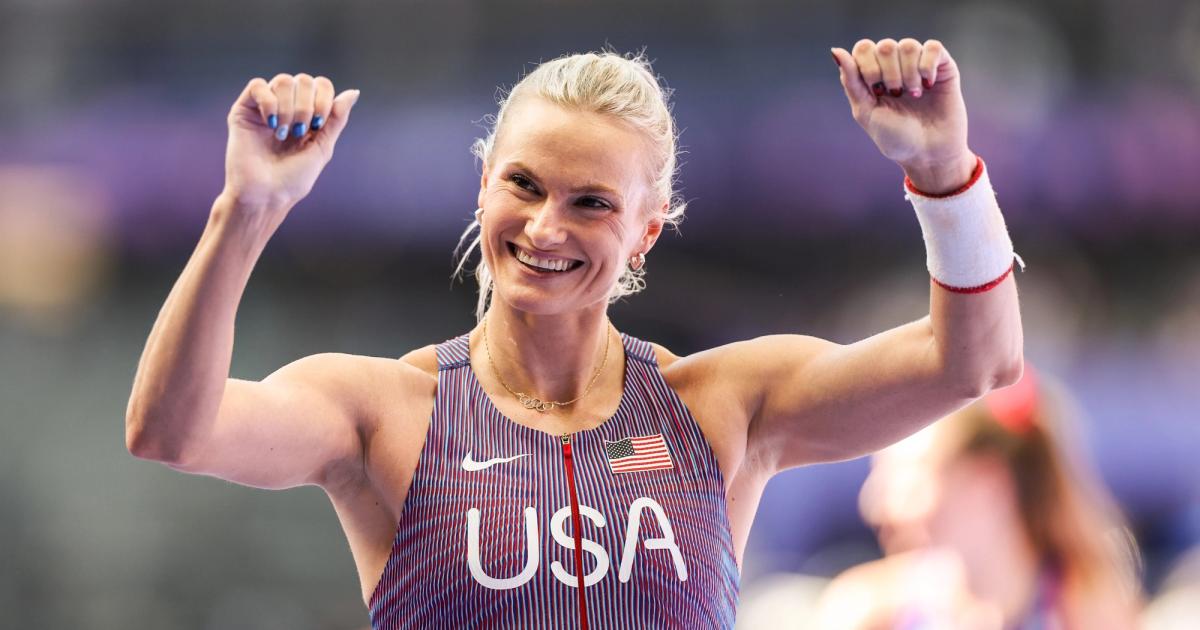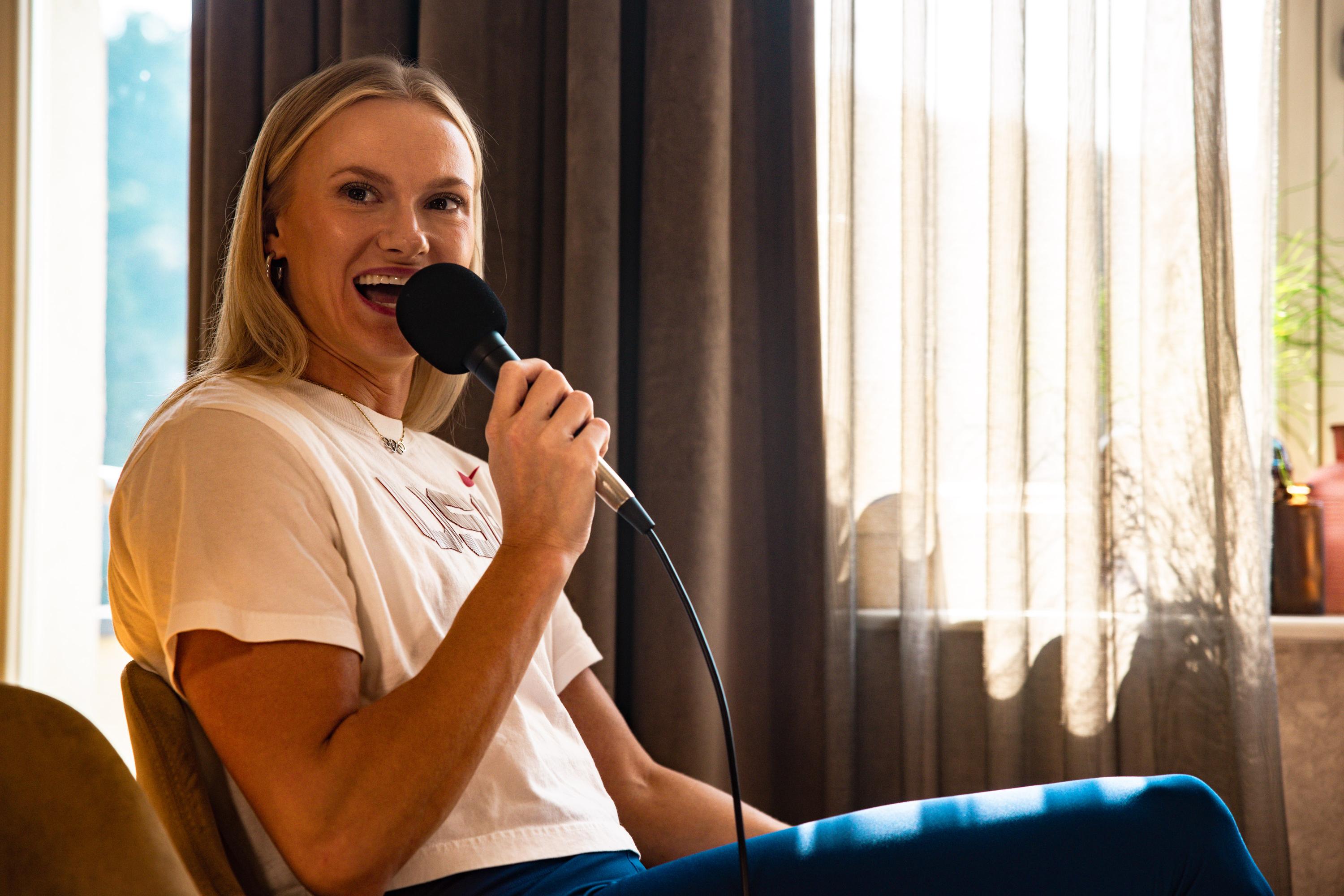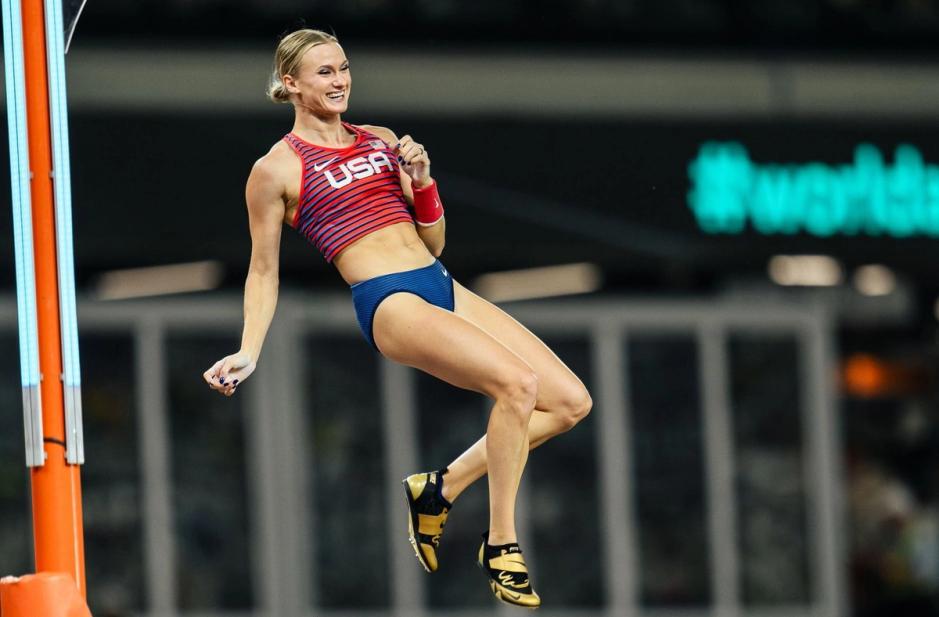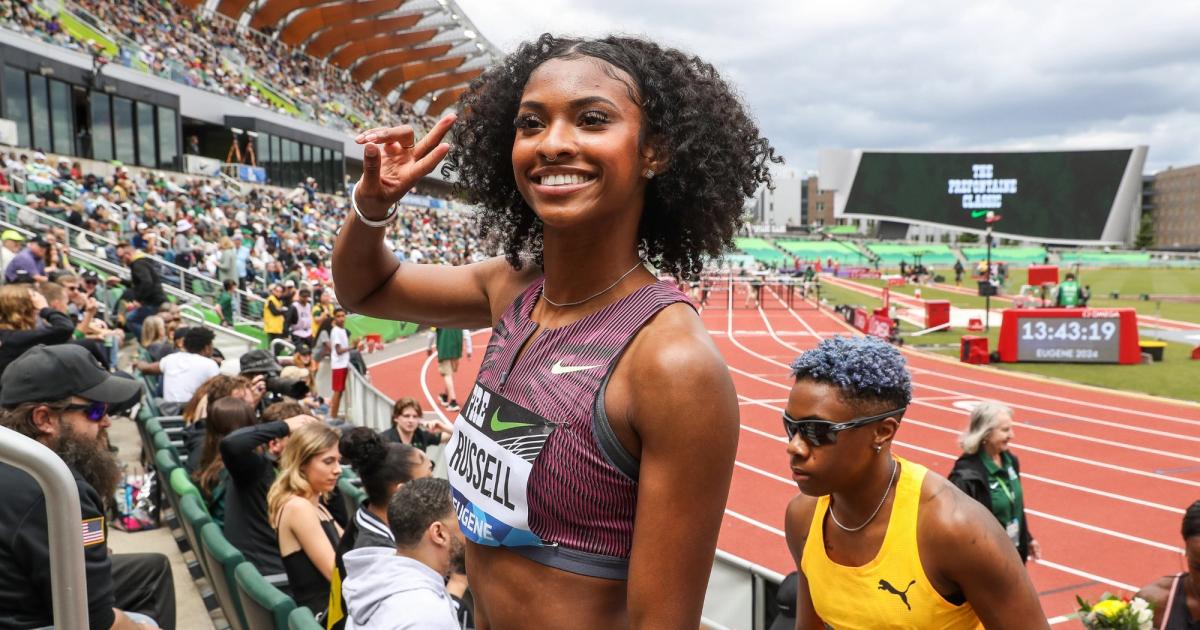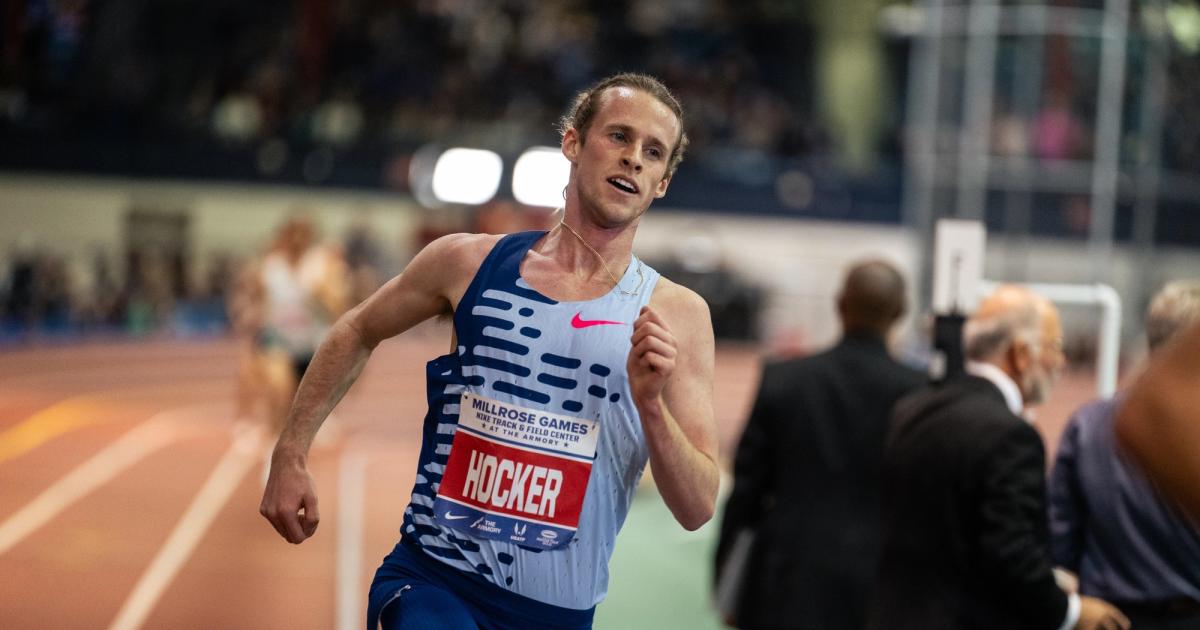By Audrey Allen
December 17, 2024
"I love competing at Millrose and competing at The Armory specifically. When you find a runway and a setup that's really good for the pole vault, you want to go back every time."
Katie Moon, the two-time World champion in the women’s pole vault and most recently a silver medalist in Paris, will contest her fifth Millrose Games in February.
Here’s what you need to know:
– Despite dealing with an Achilles injury last season that threw a wrench into her plans, Moon was still one of the very best vaulters in the world in 2024. She added a World Indoor bronze and Olympic silver to her already illustrious trophy case, and tied for fourth on the world list with her season’s best of 4.85m.
– Moon last competed at Millrose in 2023, winning with a clearance of 4.81m. She also has a second-place (2018) and two third-place (2017, 2022) finishes on her record at The Armory.
– Sandi Morris, Moon’s training partner and frequent Team USA teammate, holds the facility record with her 4.91m clearance from 2020.
“I would love to improve my indoor personal best,” Moon tells CITIUS MAG. “I mean, the next bar up from [4.91m] would be an indoor American record, that five-meter barrier. So you go 4.92m for a meeting record and then why not put it up to something like that? It's a very natural increment. I would love to get that record for sure, and then hopefully a couple more.”
You can listen to her full interview on the CITIUS MAG Podcast.
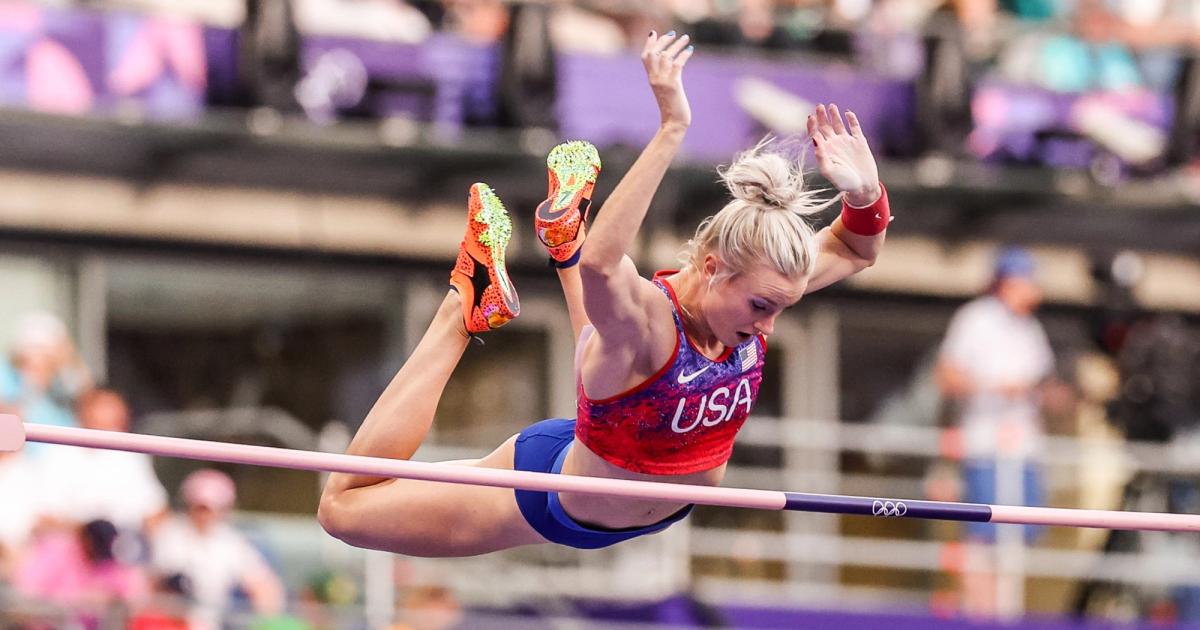
Kevin Morris / @KevMoFoto
This interview has been edited lightly for length and clarity.
Paul Hof-Mahoney: We're starting to ramp up towards the 2025 season, can you share a bit about that and what your off-season has looked like?
Katie Moon: I took five weeks off completely which is always really nice just getting away from it – not just physically but mentally. I literally did nothing pole vault, lifting or fitness-related for a good five weeks and then just started back in October.
Last season, I had tendinosis in my Achilles, but so far that's been great (knock on wood) and training has been going really well. Because I won in Budapest, I have the automatic bid to Tokyo, so I don't have to stress about the [2025] U.S. Trials which is really nice. I can really tailor my training to peak at Tokyo.
Moving back to your 2024 season, you mentioned your Achilles injury that you had to fight through all year. Can you share some of your reflections from 2024, a season where you were going through so much but still came away with World Indoor bronze and Olympic silver medals?
I’m grateful for how the season ended up, looking back on it. While you're in it, it always feels worse. I was still doing relatively well at competitions and I still jumped a 4.85m bar in the middle of the season. So it wasn't all bad by any means.
I've had mental blocks in the past, but this was the first time that there was a physical injury that really kept me out. For a long period of time, I'd show up wanting to give it everything I could and my body wasn't cooperating. As pole vaulters, as any athlete, you're a perfectionist. You want everything to run smoothly. And when things aren't perfect, it's really emphasized, especially in the vault. Jump to jump, it was just different every time and I didn't really feel like myself. It's not a great feeling.
With that being said, I was ecstatic to walk away with a medal at the Olympics. My final meet before the Olympics was my worst meet all year in London, where I only cleared my opening bar. All I wanted out of the Olympics was to just feel good on the runway again. We were finally at a place where the pain was manageable, and I knew I still had that in me somewhere. But it's really nerve-wracking when you're getting close to your biggest competition and things aren't running 100% perfectly. So I'm just really grateful for how the season finished out.
In those moments where it did seem kind of dark and you were dealing with the worst parts physically, how did you stay focused and motivated knowing the Olympics were the final goal?
Honestly, the 2022 season did so much for that part of me and my mental confidence in just staying relaxed and focused. The 2022 season, post-Olympics, was terrible by all accounts. Other than the final meet of the season, which was a great one to have a good one – I had the post-Olympic blues, post-Olympic depression, or however you want to refer to it as. I was jumping terribly all year but I still showed up. I still put in the work so that on the day I still had the fitness and the strength, I was still the same vaulter capable of all the same things. It was just about getting my head right.
That season showed me that if you show up and put in the work, as long as you do that, every competition leading up truly does not matter what the results are. As long as you just stay calm, don't get too upset, and don't get overly fixated on the bad. Just focus on what you can do. Show up and put in 100% that day. Every day, 100% is going to look a little different. But as long as you are giving that version of 100% every day, you can still accomplish some really great things.
I learned a lot from that 2022 season and that helped me to stay calm and not get ahead of myself. I was like ‘Yes, it's been hard, but you've dealt with hard before and you've been able to have great championships when it's been difficult.’
After London, my coach sat me down and was like ‘I don't know the stress that you're feeling, the pressure of trying to defend a title – but just go in and enjoy it. You've made the team. This Olympics is going to be what Tokyo should have been. You've already done all the things.’
I think him saying that really gave me permission to just go easy on myself. So it was a combination of those bad seasons in the past and then having the support system around me to keep me grounded.
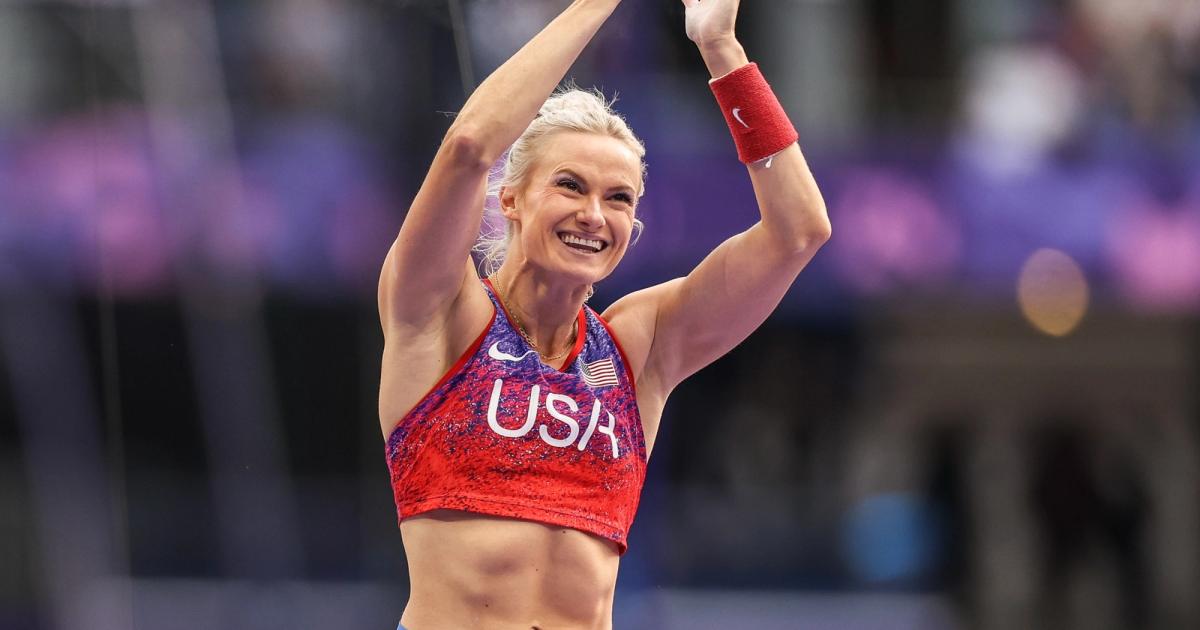
Kevin Morris / @KevMoFoto
You're going to be competing at your fifth Millrose Games this February. Can you share about your experiences at that meet in the past and what makes competing at the Armory so special?
I love competing at Millrose and competing at the Armory, specifically with the pole vault. When you find a runway and a setup that's really good for the pole vault, you want to go back every time.
The Armory is a place where you can always jump high. The runway is just so good. The crowd is great. The environment's super cool. I'm very excited to go back. I think (knock on wood) I've only ever had one bad meet there, and that was in that 2022 season when everything was just a little bad for me by all accounts. So I don't think it was necessarily the venue.
I don't have a set plan yet for my indoor season, but I know that my first meet is usually not fantastic for whatever reason. I think getting back into competing is always a little bit different for me. You're on bigger poles, the adrenaline, the excitement. More often than not I usually only clear one, maybe two bars. I don't want that to be the case at Millrose, so I plan to open up the weekend before – I don't know where yet – so that I can come into Millrose and really give it a great shot to jump something.
I would love to improve my indoor personal best. I mean, the next bar up from [4.91m] would be an indoor American record, that five-meter barrier. So you go 4.92m for a meeting record and then why not put it up to something like that? It's a very natural increment. I would love to get that record for sure, and then hopefully a couple more.
One thing a lot of people have been noting when looking at 2025 is how long of a season it’s going to be. But you competed in a season like that before. In 2019, you competed 25 times. Is a season that long as big of a deal for pole vaulters?
The older I get; the less I'm going to compete. I get itchy, though. I love competing and I compete so much better than I train, so I like to compete my way into shape. I will get better repetitions and consistent jumping from a competition than I will from a practice, especially for my full approach run.
This is the latest I'll have ever opened because I've always jumped in January, even if it's just from a short approach. I also probably will stick to the major competitions, the Diamond Leagues and things like that.
When you're younger and you're healthy and you can do a lot more, you jump at all kinds of opportunities. Sometimes I need a few more competitions to get myself where we want to be. Sometimes training is going well and we'll just pick and choose the way that I travel because it is really hard on the body, on top of competing a lot.
I don't know exactly how many we'll have this year, but I do want to be smart about it because it is a long season. I don't know that I'll necessarily have quite as many as that 2019 season, but we'll take it and see what meets make sense as it comes.
We've got World Indoors again this year, for the second year in a row. You have the Olympic title from Tokyo and World titles in Budapest and Eugene. Are you viewing this year as a box you need to check off to win a World Indoor title? What does your approach to Nanjing look like for this year?
Going back to your other question as to how often I'll compete – I'll be honest, I am not sure if I will go if I make the team. It's something me and my coach will talk about as it gets closer. We do want to be really smart.
I mean, it’s a long trip. I really like indoors but the weight of outdoors is a bit bigger. So I'm going to go to USAs and do everything I can to make that team. And then we're going to decide what makes the most sense. If I am healthy, I probably will go.
It's not lost on me that it’s the only major one that I don't have a gold in, so I would definitely love to do that. But at the end of the day I have a couple other really awesome indoor medals that are great as well.
We'll figure it out as it comes, and I have to make the team first before we can even have that conversation. The U.S. women are always good and you always have to show up and at least have a good day if you're going to be on any team, especially indoors as it’s only two spots.
Another aspect of the 2025 season that's been getting a lot of chatter is these new track endeavors like Grand Slam or ATHLOS that are excluding field events. But then field events are having some of their own events like Zurich pole vault and the train station, which I know you've been to a couple of times, or some street shot put competitions… and most importantly, the Katie Moon Pole Vault Classic.
The Katie Moon Pole Vault Classic doesn't have even close to the prize money that Grand Slam does, so I would still love to be a part of those. We definitely have some really cool opportunities, but it is frustrating when they're trying to do something cool and new and innovative in the sport and they're basically saying, ‘Well, you're not our problem and I can't save you.’
It's frustrating because I think people really undervalue the field events. Obviously, I know the hierarchy of things. Everybody understands the ‘fastest man in the world.’ Everybody understands what it's like to go out and run a mile or everybody can go run a marathon if they want to – so people understand those time frames. But there is a lot of in-between time on the track and the pole vault and the shot put and the field events keep it exciting.
If you look at the broadcasts, I think the commentators do a great job with what they're given, but all they can do is comment on what's already happened and they show one jump. That's not as exciting.
But if you watched me and Nina battle it out – especially back in Budapest for example, where we are going jump-for-jump matching each other for a good at least half hour. Or back in Rio when it was Renaud and Thiago and you think Renaud has got it and then Thiago clears a personal best in his home crowd like the whole storyline of that playing out is awesome and super exciting. I feel like it can be sold to people, but it's not shown very well right now. Instead they show six to 10 slow-motion replays of the same race and there's not split screens. There's just so many ways that I think they blame us. But the reality is, I think you can sell a lot of things to people if you do it in the right way.
You're the fifth-best vaulter in history as it stands right now. But I know you still have that fire in you to keep progressing. At this stage in your career, where is that improvement going to come from to enter the five-meter club or go after one of those American or world records?
I've attempted those heights in the past. The last couple of seasons I've had injuries that unfortunately make it difficult to attempt something like an American or a world record, because you really have to be firing on all cylinders.
But what's cool is in Paris, I was pretty high in the air. I mean, I know I only cleared 4.85 meters. But it was some of my best jumping that just showed me, ‘Okay, you still have that in you. You still have the heights in you.’
Pole vault is an equation. I know that if I get to this sized pole in a competition, I'm going to be that high in the air. Whether I clear it or not is a very different story. There are very specific markings for seeing where your progress is. I know if I'm lifting this much and my speed on the runway is this much I can get on this pole and I'm going to be this high in the air – as long as I'm doing it efficiently.
I don't know that it necessarily requires making huge improvements because I've been able to attempt it in the past. I've had shots at it, there was one really close one where I just brushed [the bar] as I came down. Those are the jumps you hold on to and you remember and it keeps you motivated.
It's really about staying healthy and getting those reps and not having setbacks in the way. The older I get; it's an uphill battle in some ways there. I fear that I might be at a point where something just flares up every season now. Hopefully that's not the case, and I'm being extremely diligent about my therapies, prehab, rehab, things like that.
It's not that anything major needs to change or get better. It really is just repetitions and getting on the right pole on the right day.
Mondo Duplantis received a lot of attention for his 100m race with Karsten Warholm. In your opinion, who is the fastest women's pole vaulter?
I'm a little biased – I’ve been told it’s me. But Sandi is also very fast. I've been told that she and I are the fastest two on the runway, just depending on the day.
But I do a lot wrong [mechanically]. I'm fast on the runway, but it's hard to know for sure. We don't always get runway speed sent back to us. At the end of the day, no one on that runway is slow; otherwise you just couldn’t be jumping high.
So let's take you or Sandi then. What would be a good 100m race between you guys and a track athlete?
I think Sandi’s got me over 100m. I haven’t run a 100m in a long time, but I did break 12 seconds and that's all I ever wanted to do.
But in keeping with the 400m hurdles, maybe someone like Femke. But if you think about it, in order to run the times that they do, then divide it by four – they're moving really quick for 100m. But I do think it would be comparable or at least wouldn't be too far off.
Listen to the full episode here.
___________________
Keep up with all things track and field by following us across Instagram, Twitter, Bluesky, Threads, and YouTube. Catch the latest episodes of the CITIUS MAG Podcast on Spotify and Apple Podcasts. For more, subscribe to The Lap Count and CITIUS MAG Newsletter for the top running news delivered straight to your inbox.
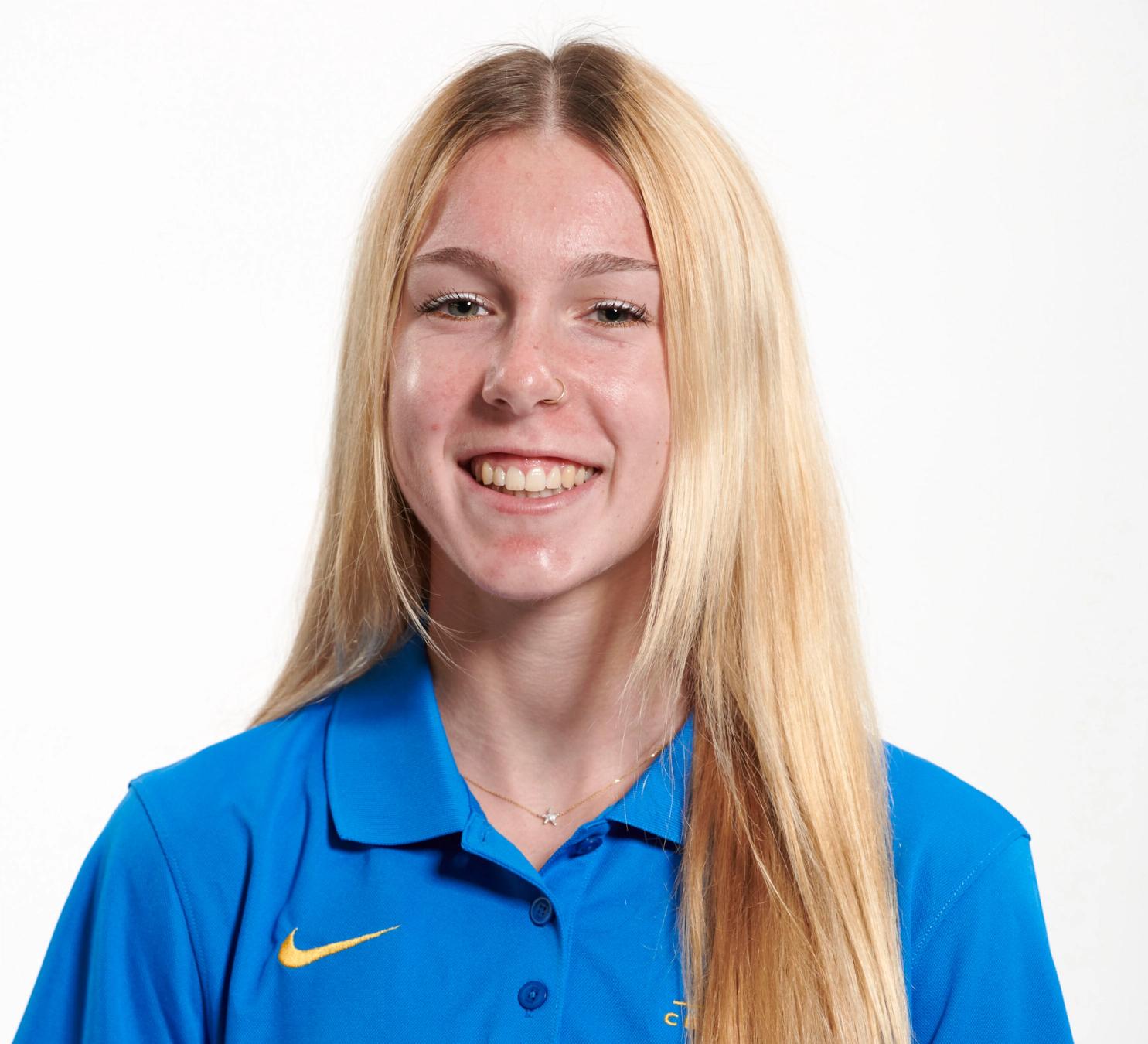
Audrey Allen
Audrey is a student-athlete at UCLA (Go Bruins!) studying Communications with minors in Professional Writing and Entrepreneurship. When she’s not spiking up for cross country and track, she loves being involved with the media side of the sport. You’ll often find her taking photos from the sidelines or designing graphics on her laptop.
